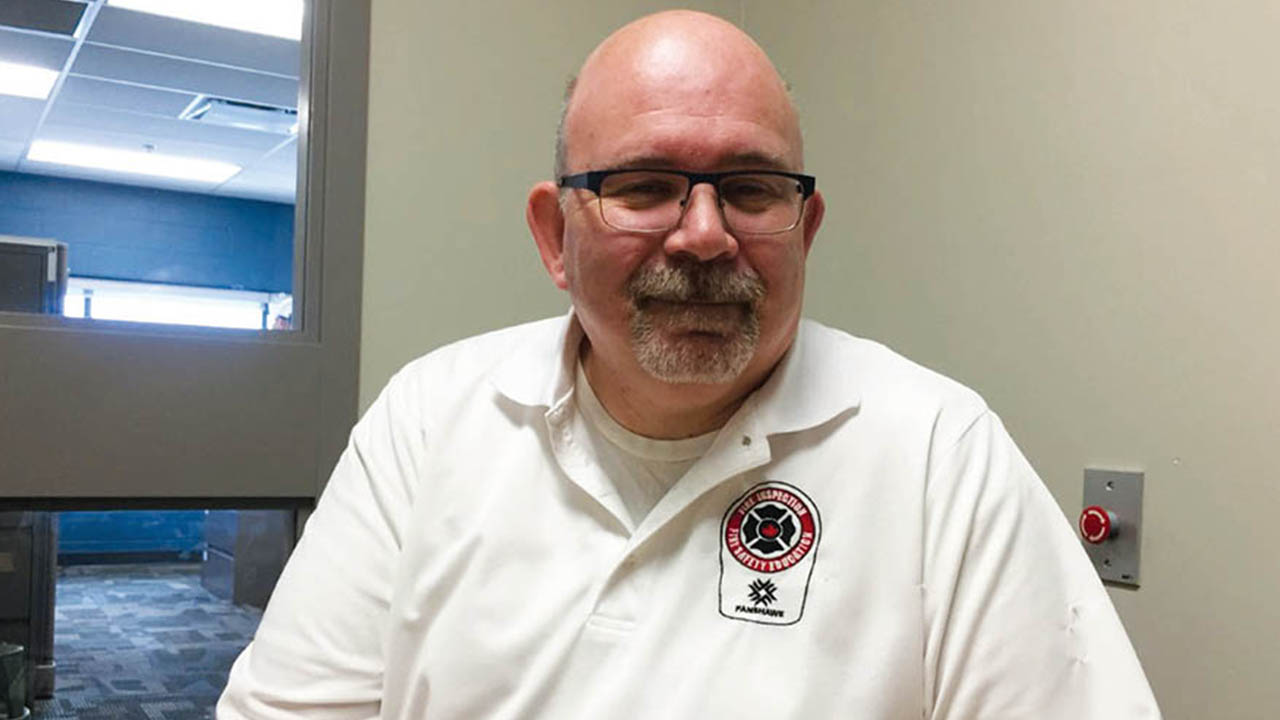Expert: More time at home means higher risk of fires
 CREDIT: JASON MACDONALD (FILE PHOTO)
CREDIT: JASON MACDONALD (FILE PHOTO)Fanshawe's Fire Inspection and Fire Safety program coordinator, Frank Donati said COVID-19 could be to the blame for increase of recent fires in the home.
If you’ve been hearing sirens more often in London recently, you’re not alone.
There have been 103 fatal house fires in Ontario in 2020, and already 25 fatal fires in Ontario so far this year. As with so much else, the COVID-19 pandemic could be to blame.
Frank Donati is the program coordinator for Fanshawe’s Fire Inspection and Fire Safety program. He explained that more time in our homes, opens the doors for a higher risk of fires in the home.
“We’ve had a fundamental change in how we’re living our lives, right, with so many people working from home, as opposed to going to the workplace, habits change, we’re doing different things where we’re using our homes differently,” he said.
Cooking remains the number one cause of fires in Ontario, at around 18 per cent, according to the Ontario Government. With so many more people cooking at home, that increases the chances of ignition sources from cooking accidents.
“That’s the number one cause of house fires is cooking, unattended cooking,” said Donati. “And it continued, that trend continued with COVID. Especially because more people are at home cooking.”
Suspicious fires have also been on the rise in London recently, with at least four ongoing cases in the region as of March 2. Still, the number one cause remains human error in the home.
“If you’re busy trying to do a teleconference call, or a Zoom call... and I’m hungry, I’m trying to get my KD done at the same time. And then you and I get thoroughly involved in our conversation and boom, the next thing you know, we got a fire,” said Donati, explaining how easily unattended cooking can lead to a fire in the home.
Other common causes are often linked to the weather. Our heating systems and electrical power sources are operating at full capacity for longer while people work from home, increasing the risk that something could go wrong.
“We’re working in basements or part of the home where maybe it’s not as insulated,” said Donati. “So you want that extra heat.”
Separate from the pandemic, erratic changes in weather brought on by climate change could be having an impact on the instance of fires in London. We’ve seen the devastating impacts that climate change has had on the forests of California, but how do rapidly changing weather conditions affect the risk of fires here? Donati said it all comes down to how we’re maintaining our heating and cooling systems.
“We are in Canada, we are a northern country, we have climate change that we know,” he said. “So when we have wild fluctuations.... it’s making sure that the stuff we have in our home, those systems, the heating, the cooling, even the life safety systems or appliances, that you take the time to do the proper maintenance, you take care of them and ensure that they’re working correctly.”
As winter shifts into spring and temperatures spike and drop, Donati said it’s more important now than ever to be mindful of these risks so as to avoid any future fires in the home.
Part of the reason why fires have been increasing in the London region could be due to a lack of fire education amid COVID-19. Inspections for homes have switched to a virtual format, while group sessions and workplace training will have also shifted to Zoom.
“So fundamentally, the legislation still requires some of that work to be done,” said Donati. “And I think everything’s triaged to what is what is a significant risk, right, those immediate threats need to be dealt with and other things, whether the routine, you know, the paperwork can be submitted, and some of these things can be done from a distance.”
So with inspection routines disrupted and more risk of fires in the home, what can be done to avoid any potential risks? Donati explained that as always, the best thing you can do is make sure things like smoke alarms and exit routes are operating and prepared. Most importantly, always be maintaining home appliances and seeking out fire education where you can.
“And pay attention to what you’re doing,” said Donati. “Being distracted can be deadly.”






